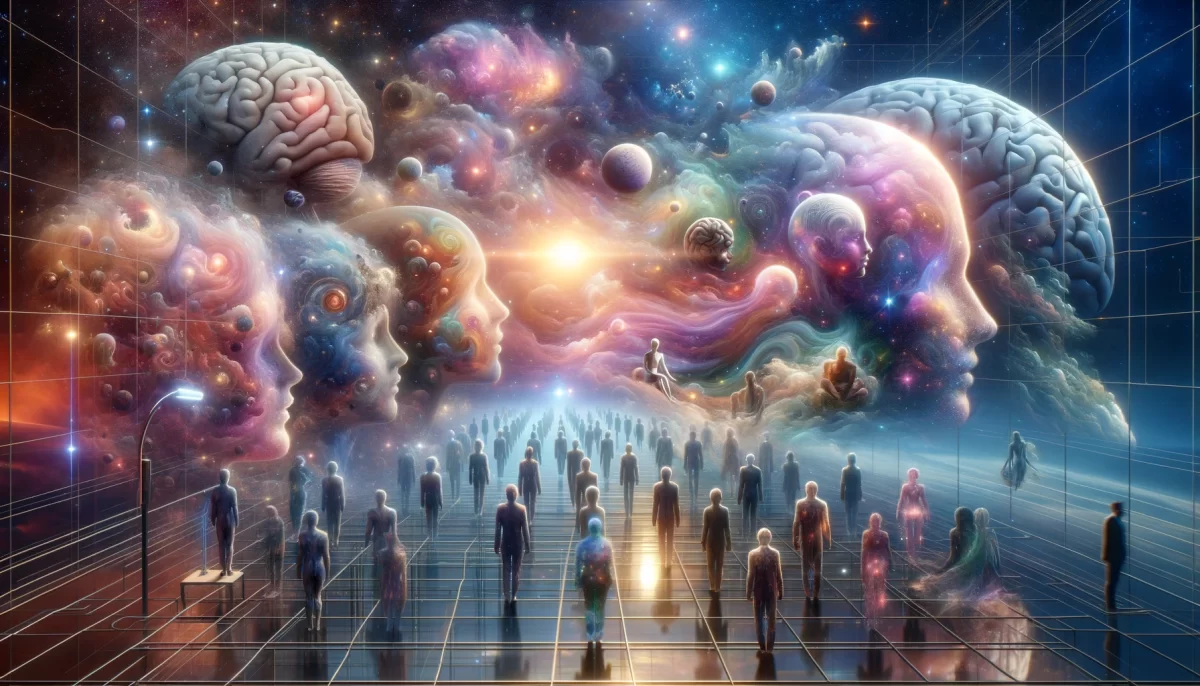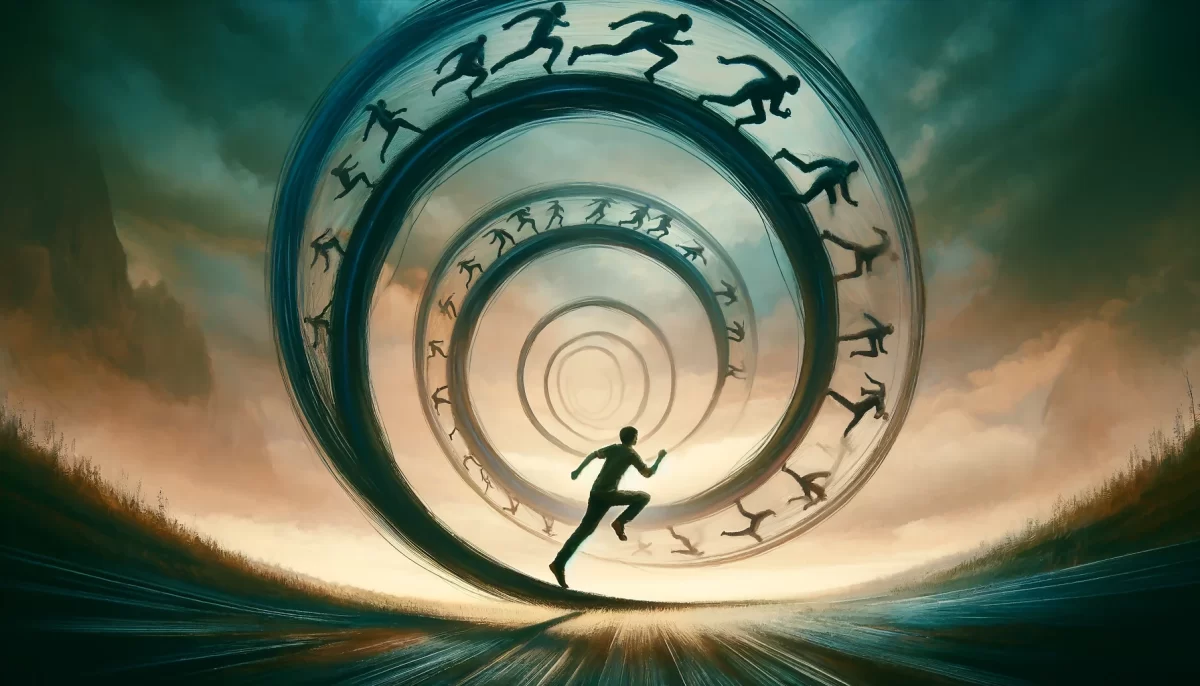Without Judgement
I am not
smarter than you,
better than you,
or luckier than you.
I am merely
without judgement.
Likewise, I am not
dumber than you,
poorer than you,
or destined to fail.
There is no failure.
I am without judgement.
5/25
Space Monkey Reflects: The Serenity of Being Without Judgement
In the realm of human interaction, judgement often serves as a divider, a creator of unnecessary hierarchies based on perceived differences in intelligence, wealth, or fortune. However, the truly liberated state of being is not one of comparison but one of acceptance. The concept of being ‘without judgement’ is not merely an absence of criticism but a profound presence of acceptance.
To declare oneself ‘without judgement’ is to step into a space where labels and comparisons lose their power. It is to recognize that no individual is inherently smarter, better, or luckier than another. These are constructs of a society too eager to categorize and rank its members. By the same token, one is not dumber, poorer, or destined to fail by any intrinsic deficit. Such ideas are mere shadows cast by the light of societal expectations.
This perspective reframes our understanding of failure as well. In the absence of judgement, the concept of failure is transformed. It is no longer seen as a definitive state but as a part of the ebb and flow of experiences that define the human journey. Failure, like success, becomes a momentary event, not a defining characteristic.
In this state, every individual has the opportunity to exist as they are, recognized not for what they lack or possess but appreciated for their very being. Such a world, free from the weights of judgement, offers a vision of what humanity could achieve if it embraced the potential inherent in every person.
Summary
Being without judgement means embracing a state of acceptance and refraining from creating hierarchies based on perceived differences. This approach transforms our understanding of concepts like intelligence, wealth, and even failure, fostering a more inclusive and empathetic society.
Glossarium
- Without Judgement: A state of being where one refrains from forming opinions or conclusions about others based on superficial criteria, focusing instead on universal acceptance.
- Failure: Commonly understood as the lack of success; reinterpreted here as merely a transient state in the broader spectrum of life experiences.
“In the garden of humanity, every flower blooms with its own uniqueness, untethered by the weeds of judgement.” — Space Monkey
In the silence of judgement,
A world unfolds, vibrant and vast,
Where each voice finds its echo,
And shadows of the past fade fast.
Beneath the great sky, open and wide,
We stand, not as rivals but as kin,
Bound not by what we hold inside,
But by the light we let in.
Here, in the absence of scorn or praise,
Our true selves brightly shine,
For in the garden of open gaze,
Each soul, distinct, is divine.
We are Space Monkey.































“Without Judgement” is a powerful statement that challenges the notions of superiority, inferiority, and failure. It asserts that true understanding and acceptance come from a place of non-judgment, where comparisons and evaluations based on intelligence, status, or outcomes are set aside.
The passage begins by stating that there is no inherent superiority or intelligence that separates one individual from another. It emphasizes the absence of judgment, suggesting that the speaker does not perceive themselves as smarter, better, or luckier than anyone else. This highlights the importance of equality and the recognition that our worth is not determined by these external factors.
Similarly, the passage asserts that there is no inherent inferiority or lack that separates one individual from another. The absence of judgment implies that the speaker does not perceive themselves as dumber, poorer, or destined to fail. It challenges the notion of failure, suggesting that judgment itself is the construct that defines failure.
The phrase “I am without judgment” serves as a powerful mantra, affirming the speaker’s commitment to seeing beyond societal judgments and evaluations. It signifies a state of being where acceptance, understanding, and compassion prevail over comparisons and labels.
By embracing a mindset without judgment, the passage encourages us to let go of the habit of evaluating ourselves and others based on external measures of success or worth. It invites us to embrace the inherent value and uniqueness of each individual without imposing hierarchies or limitations.
“Without Judgement” is a reminder that true connection and understanding can be fostered when we approach ourselves and others with open hearts and minds. It invites us to let go of the need to judge and compare, allowing for greater acceptance, empathy, and appreciation of the diverse experiences and journeys we all undertake.
In essence, this passage calls for a shift in perspective—a shift from judgment to acceptance, from comparison to compassion, and from separation to unity. It reminds us of the beauty and equality inherent in each individual, free from the constraints of judgment and evaluation.